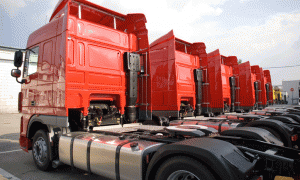McDonald’s UAE fleet to hit 5m km powered by biodiesel
Biofuel produced from recycled vegetable oil powers US fast food giant’s UAE fleet

McDonald’s UAE is set to hit a milestone this month when its fleet of trucks completes 5 million kilometres running on biodiesel made from recycled vegetable oil.
The fast food chain in 2011 teamed up with Dubai-based Neutral Fuels, which manufactures biodiesel.
Under the partnership, a fleet of sixteen trucks collects used cooking oil from McDonalds’ UAE outlets as often as twice a day. The oil is then converted to 100% biodiesel by Neutral Fuels, after which it powers the trucks.
Using biodiesel has helped the American fast food giant significantly cut down on carbon emissions.
According to UK Government DEFRA conversion factors, driving 5 million km on normal diesel would have resulted in a footprint of 4,427,759 kg of CO2, whereas the use of biodiesel would have been a carbon footprint of 56,385 kg of CO2.
This has helped McDonald’s UAE save the equivalent of the average carbon footprint of 214,283 UAE citizens in a year, as per World Bank figures.
In February, Neutral Fuels signed a deal with Dubai Municipality, under which the government body will adopt biodiesel in municipal vehicles.
The biodiesel-maker last year produced the same amount of fuel that would save about 240,000 trees worth of carbon, Karl Feilder, chairman and chief executive of Neutral Fuels told MEConstructionNews.com. The biodiesel is sold at the same price as diesel at the pump.
“The carbon footprint of biodiesel is about 80% lower than normal diesel. As a fuel, it burns cleaner than normal diesel,” Feilder said.
In addition, biodiesel could be better than mineral diesel for engine performance, he noted. “Your engine will probably last longer and it’ll give you the same performance, the same fuel consumption and cost the same.”
Despite the benefits of biodiesel, it wasn’t all smooth sailing for the firm, Feilder said
“The biggest challenge we’ve had has been educating people,” he noted. “We had to explain at every meeting what biofuel was about, how we made it, why it was good for the environment. It’s very difficult for anybody to trust that when they don’t see it.”





